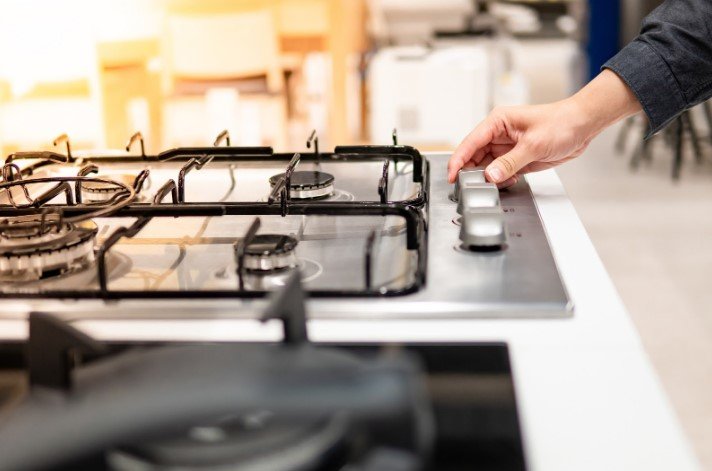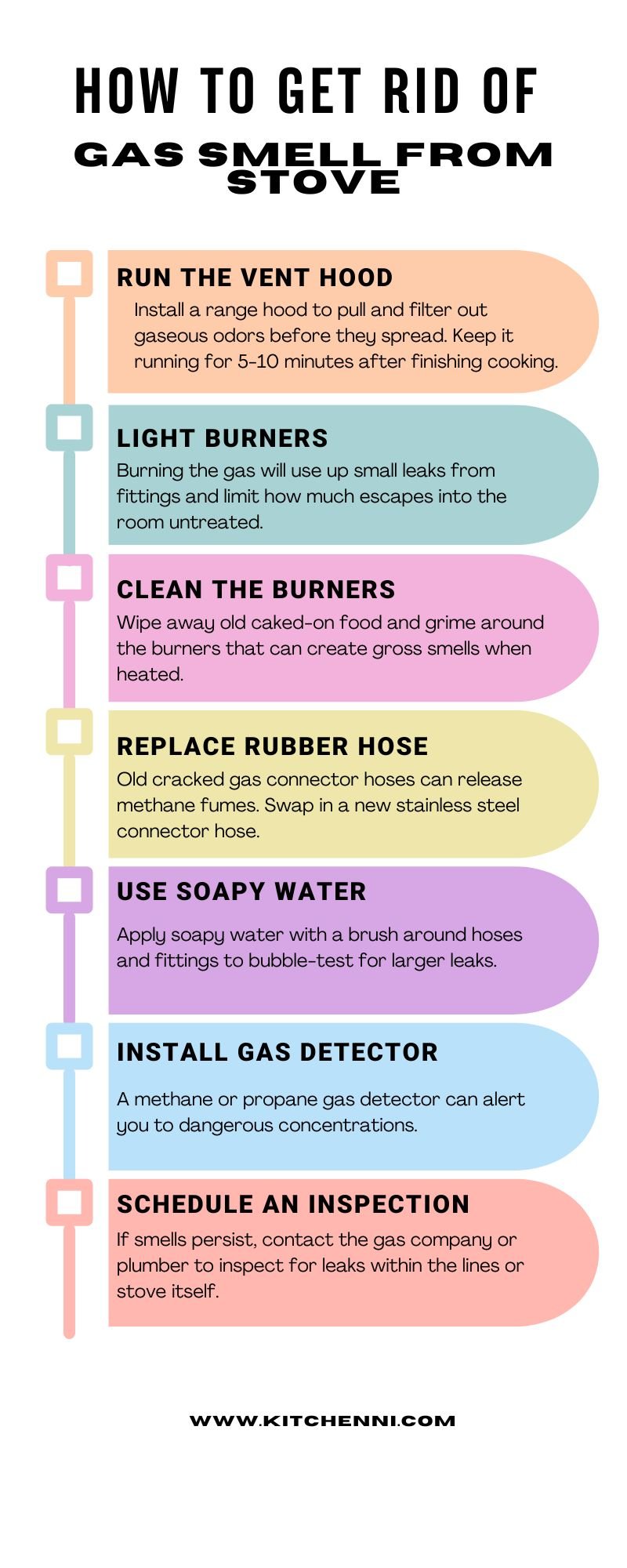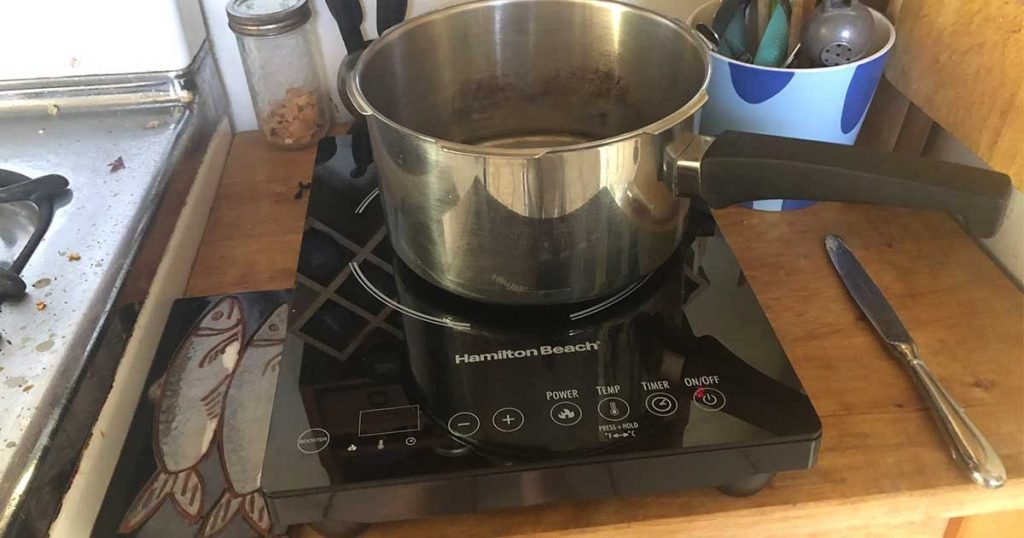Yes, this is practically normal, especially if the gas range is new. But you need to check the root of the problem to avoid larger leaks. And we’ll show you how.
Nothing gets a home cook more panicked than the smell of gas from their gas range. If you’ve experienced this, it’s common to ask yourself: Is that scary smell normal, or a sign you’re about to go ka-boom?
Here’s the deal – a little gas is no cause for alarm. But small leaks often hint at larger issues brewing behind the scenes, and you can tell if your gas leak detector goes off. Knowing the difference between a harmless burner whiff and a dangerous situation is key.
Let’s check out the facts, so you don’t freak next time your stove starts to give off some odors! We’ve got tips on identifying leaks, clearing the air, and cooking safely with gas so that ugly odor doesn’t ruin your night.
Is It Normal to Smell Gas After Installing a New Stove?
It’s very common to get some “new gas stove smell” during the first few weeks after installation as pipes get primed with fuel. Think of it like that new car smell, but not nearly as pleasant.
Do you know why a natural gas leak smells like rotten eggs? We actually make it smell that way so you can tell when there’s a gas leak. If you think you smell gas, act fast. Stop what you’re doing, go outside & call us or 911! Learn more about #GasSafety https://t.co/Kv0dCvxhao pic.twitter.com/w3Td6sUBYA
— FortisBC (@FortisBC) January 9, 2023
In fact, up to 4 in 10 households experience gas odors from a recently installed or replaced appliance. This is especially true in older homes with aging fuel lines that get primed with fresh gas.
How long does the new gas stove smell last? In most cases, the initial odors dissipate within 1-2 months as the piping gets conditioned to the gas flow. Keep the kitchen well ventilated and run the burners briefly to speed up the process. The smell should steadily improve over time. Call the gas company if it persists past a month.
How to Get Rid of Gas Smell From Stove
Here are tips to clear the air when your gas stove starts stinking up the place:
How to Get Rid of Gas Smell From Stove Infographic
- Run the vent hood – Install a range hood to pull and filter out gaseous odors before they spread. Keep it running for 5-10 minutes after finishing cooking.
- Light burners – Burning the gas will use up small leaks from fittings and limit how much escapes into the room untreated.
- Clean the burners – Wipe away old caked-on food and grime around the burners that can create gross smells when heated.
- Replace rubber hose – Old cracked gas connector hoses can release methane fumes. Swap in a new stainless steel connector hose.
- Use soapy water – Apply soapy water with a brush around hoses and fittings to bubble-test for larger leaks.
- Install gas detector – A methane or propane gas detector can alert you to dangerous concentrations.
- Schedule an inspection – If smells persist, contact the gas company or plumber to inspect for leaks within the lines or the stove itself.
What Do I Do If I Suspect a Gas Leak?
Even small, persistent gas leaks should not be ignored, as they can lead to dangerous methane buildup over time. Addressing leaks improves the safety of your home.
If the gas smell persists for more than a day or two after trying mitigation methods, you likely have a real gas leak that requires immediate response:
- Evacuate everyone from the home and move a safe distance away.
- Do not light matches, turn on/off appliances, switch lights, or do anything that could ignite leaking gas.
- Call 911 or your gas provider’s emergency leak hotline from outside the home.
- Do not re-enter until officials confirm it is safe to return.
- Get all gas appliances inspected by certified technicians before resuming use.
The Bottom Line
It helps to remember that brief whiffs of gas from the stove are not automatically cause for panic. In new appliances, some odor during the break-in period is expected. And cooktops will inevitably emit traces of fumes.
But persistent bad smells, or very strong rotten egg/sulfur odors that permeate the home, are signs of a problematic gas leak requiring immediate response. Trust your nose – if it smells sketchy, take action.
Common Questions
Why does my new gas stove smell so bad?
It’s very common to get some unpleasant “new gas smell” for the first few weeks after installing a new stove while the lines get conditioned with flow. Keep the kitchen ventilated and it should fade.
Is it normal for a gas stove to smell when first turned on?
Yes, brief smells upon ignition as the gas primes and minimal occasional whiffs are normal. Consistent strong gas odors or the smell of pure unburned natural gas are not.
Should I be concerned about the faint gas smell in the house?
Occasional faint whiffs may be normal, especially around the stove. But persistent faint methane odors warrant having a technician inspect for possible leaks.
What does a major gas leak smell like?
Major gas leaks have a very strong, distinct rotten egg or sulfuric smell that persists and quickly permeates an entire home, rather than only being noticeable near appliances.
Does home insurance cover gas leak damage?
Most home insurance policies cover sudden gas explosion damage but not gradual methane seepage. Contact your insurer about coverage specifics in leak situations.




